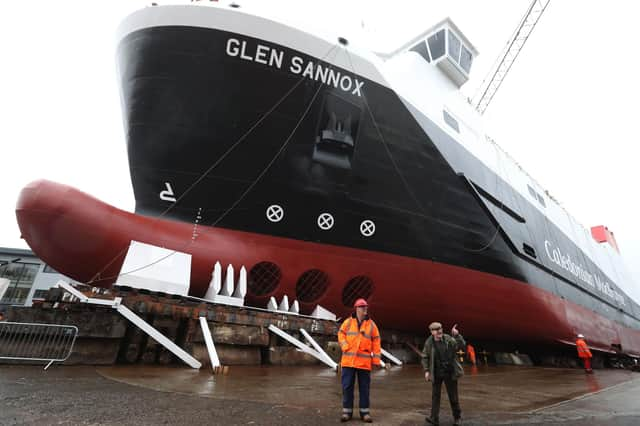Devolution has taken Scotland backwards under secretive, wasteful and unimaginative SNP – Brian Wilson


It was centred on Breasclete, on the west of Lewis, and the thinking behind it is remains relevant today. In waters west of the Hebrides, vast quantities of fish are caught by vessels of all nations – Spanish, Dutch, Danish, British, assorted flags of convenience. Yet virtually no value comes ashore in the islands.
The project was driven by the Highlands and Islands Development Board which, in those days, was a public agency equipped with the money and powers to make a real difference. It partnered with a Norwegian company to build a fish-drying plant and invested in vessels which would supply it.
Advertisement
Hide AdAdvertisement
Hide AdTo cut a long story short, the project failed after a couple of years. The plant had difficulty attracting supplies and the last straw came when Nigeria, the main market, stopped paying its bills. So, to this day, our archipelago with an international fishery on its doorstep obtains none of its economic benefit.
In re-visiting that story, I was struck by the degree of political interest it attracted at the time; so much so that the Public Accounts Committee of the House of Commons conducted an inquiry. The amount of public money at stake was £3.8 million – at today’s prices, £18 million.
It is tempting to contrast that cameo from the past with the way Scotland’s public money is now spent and the lack of accountability that accompanies it. Vastly greater sums, in real terms, are squandered on far less worthy objectives but nobody takes responsibility and parliamentary scrutiny might as well not exist.
Devolution was meant to bring government closer to the people and to make it more accountable yet in many respects, the exact opposite has happened. Holyrood should be the source of creative approaches to deep-rooted challenges, whether in the post-industrial communities of the Central Belt or the declining populations of the periphery.
If that was the case, I would be the first to cheer. Risk-taking is no bad thing if it has the potential to make a difference while the certainty is that managerial politics in which success is equated with spending money, rather than outcomes achieved, will never deliver any fundamental changes. That is certainly true in today’s Scotland.
The Ferguson’s shipyard scandal illustrates a lot of what is wrong. Nobody would fault the Scottish Government for trying to keep the yard in work, or even bending a few rules to do so. In fact, previous governments of all hues did their bit to sustain it through public procurement. However, none would have gone about it for such nakedly political purposes – or exercised so little care about what happened next.
All this is accompanied by a culture of secrecy which is based on the arrogance of untouchability. Can anyone imagine ministers turning up to the Public Accounts Committee of the House of Commons to tell them, with straight face, that the crucial documents in the trail of accountability for a £200 million overspend (and counting) on two ferries had gone missing or never existed?
The Scottish Government has the funds and the powers to make huge differences. What is missing is a passion for addressing the challenges or signs of creative political thinking. In these respects, devolution has taken Scotland backwards rather than forward. We have more politicians and more money, but fewer ideas and less sense of responsibility.
Advertisement
Hide AdAdvertisement
Hide AdLooking back to times when there were well-funded branches of government within Scotland which were licensed to take risks is not mere nostalgia. It should be an object lesson in why devolution needs to be reinvented and powers distributed, with a mandate to use them creatively, rather than hoarded and politicised in Edinburgh.
As a footnote, there is another moral in the Breasclete story. Today, the site is home to the German pharmaceutical company BASF, which provides 80 well-paid jobs. If the public investment of 40-odd years ago had not taken place for another reason, that would not exist today. The risk has paid off.
Comments
Want to join the conversation? Please or to comment on this article.

